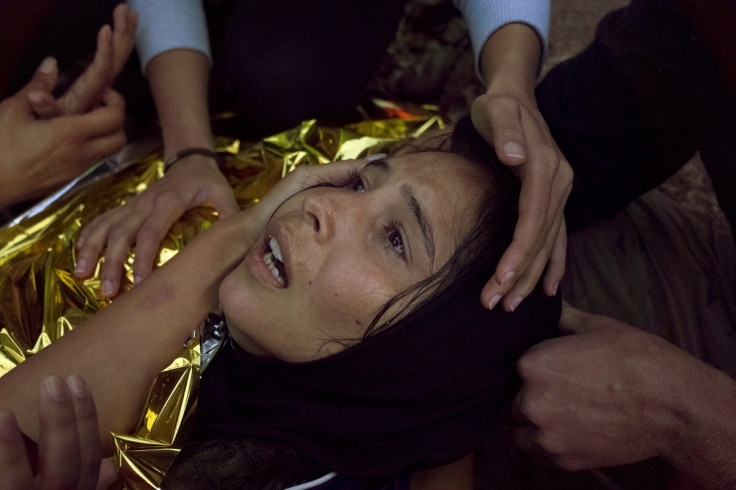Migrant crisis: 218,000 October Mediterranean crossings almost equal to all of 2014

A record 218,000 people made the perilous Mediterranean crossing into Europe in a single month, the UN has said. The October figure of 218,394 is almost equivalent to the entire total for 2014.
"That makes it the highest total for any month to date and roughly the same as the entire total for 2014," said Adrian Edwards, a spokesman for the UN refugee agency (UNHCR). Last year, 219,000 arrivals by sea were recorded by the UN.
So far in 2015, there have been 744,175 arrivals by sea and more than 3,400 people have died or gone missing while trying to reach Europe by crossing the Mediterranean – often in unseaworthy and dangerous boats. Of the disembarkations, 53% came from Syria which is now in its fourth year of civil war, 18% from Afghanistan and 6% from Iraq.
As the number of arrivals continues to swell, many countries have accused Germany – the preferred destination of many refugees – of encouraging people to make the life-threatening journey due to its "open door" policy towards refugees. The country is anticipating the arrival of 800,000 asylum seekers this year, four times as many as in 2014.
Tensions over how to handle the crisis and the growing number of people seeking to enter Germany are rife in the country, but yesterday's (1 November) round of political talks were constructive. Coalition party leaders are set to reconvene on 5 November.
"The three leaders of the coalition parties held constructive talks on all aspects of the refugee situation and will gather again on Thursday ahead of a conference of German state leaders," Chancellor Angela Merkel's spokesman, Steffen Seibert said.
"They agree on several points, as well as on several points that still need to be resolved including the issue of 'transit zones'," he added. The purpose of the "transit zones" would be to filter out migrants who do not fulfil asylum criteria.
On 30 October, 22 asylum seekers – including 13 children – died in two separate incidents in the Aegean Sea. The deaths sparked a strong response from Greek Prime Minister Alexis Tsipras, who derided Europe's shameful response to the recurrent tragedies.
"As a European leader, I feel shame over Europe's inability to defend its values," Tsipras told the Greek parliament. "Our first duty is to save lives and not to allow the Aegean to become a cemetery ... for that we are not asking for even a Euro from our European partners," he said.
© Copyright IBTimes 2025. All rights reserved.






















